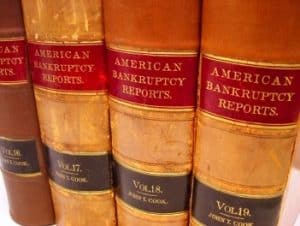
When a bankruptcy case is filed there is something created immediately upon the filing of the case called the automatic stay. The automatic stay is a very broad court injunction against the continuing of any action by creditors, collection agencies, and government entities against the debtor or the debtor’s property. Under 11 U.S.C. §362 is described the automatic stay. Whether you are a debtor or a creditor it is important to work with an experienced lawyer to navigate possible problems involving the automatic stay.
Violation of the automatic stay
-Creates a cause of action for damages, punitive damages, and attorney fees.)362(k);
-Even unknowing violations of the stay are voidable;
-Only actions taken with notice of the stay give rise to damages
Examples of stay violations:
-creditor phone calls
-collection statements not required by law or requested by client
– lawsuits
– garnishments
– repossession
– entry of default on a loan
– most attempts to collect debt by most entities
A good faith bad faith thing: The automatic stay can be denied to persistent filers of bad-faith bankruptcy petitions: If the debtor had a bankruptcy case pending within the preceding one-year period and dismissed, the stay will terminate after 30 days of the filing of the later case. The court may extend the stay if the party in interest demonstrates through a noticed motion that the filing of the later case is in good faith. The stay will not apply at all if the debtor had two or more dismissals in the past year. The court can grant a stay if the party in interest demonstrates through a noticed motion that the filing of the later case is in good faith.
Automatic stay does not apply to the following actions, which can continue against the debtor notwithstanding a bankruptcy filing: Under 11 U.S.C. §362(b):
-Proceedings concerning paternity, child custody, visitation rights, domestic violence, and divorce (to the extent the divorce proceeding does not seek to divide property of the estate).
-Criminal proceedings (other than fines imposed)
– IRS tax proceedings (other than issuing a lien or seizing property)
-Eviction of a tenant, if the landlord obtained a judgment for possession prior to the bankruptcy filing, or if the landlord is evicting the tenant because the tenant is endangering the property or using controlled substances on the property. (Exception may be available if the debtor files a certification and deposits rent.)